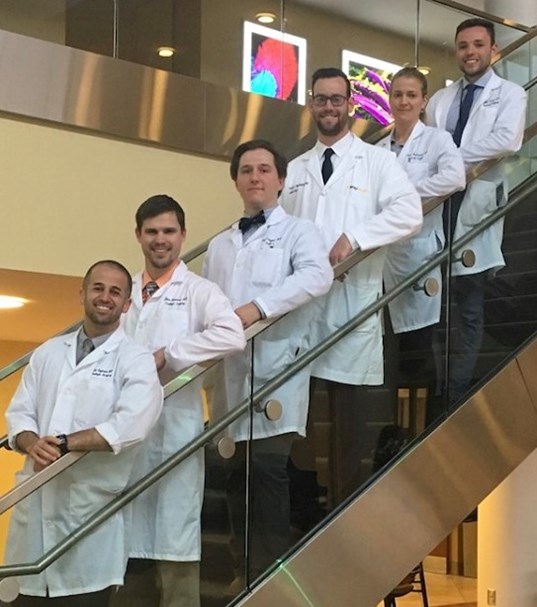Goals and Objectives
The goal of the Urology Residency Training Program is to train excellent urologic surgeons, by providing flexibility to pursue either an academic or private-practice career path. The pursuit of excellence in clinical care, discovery in research, and integrity of character are stressed. The resident will be competent in clinical science, practice-based learning, interpersonal skills and communication, professionalism, and systems-based practices.
In addition, each resident will, by the end of the residency:
- attain sufficient knowledge of etiology and management of urologic disease in the following domains: andrology, infertility, impotence, sexuality, calculus disease, neurourology, obstructive diseases, oncology, pediatric urology, endourology, ESWL, female urology, infectious diseases, renovascular diseases, surgery of the adrenal gland, renal transplantation, trauma, and urodynamics
- be able to provide total care to the patient with graded responsibility by level of training, including initial evaluation, diagnosis, use of information technology, selection of appropriate therapy, performance of high-caliber surgical technique, management of adverse events, delivery of service aimed at preventive urologic care, and collaboration with all healthcare professionals for patient-focused care
- learn basic and clinical urologic research
- demonstrate competency as defined by faculty review in patient care, teaching, leadership, organization, and administration
- learn to evaluate their patient-care practices in new scientific evidence
- learn to develop productive and ethically appropriate relationships with patients and families
- learn to work effectively as a member of the entire healthcare team
- learn to be sensitive to patients’ culture, age, gender, and disabilities
- learn to demonstrate integrity and responsibility in their professional activities
- learn to understand the multiple modalities of health-care delivery systems and strive to be cost effective in their selections of care.
Educational Goals and Objectives by Discipline
- The PGY-1 year is the introductory year of urology with 6 months of rotations in urology as well as 6 months of rotations in general surgery with WVU Department of Surgery.
- The second year of urology (PGY-2) focuses on general urology.
- The third year of urology (PGY-3) focuses on pediatric urology and endourology/minimally invasive surgery.
- The fourth year of urology (PGY-4) focuses on advanced cases in endourology/minimally invasive surgery and female urology/neurourology.
- The fifth year of urology (PGY-5) focuses on urologic oncology and advanced cases in all other disciplines.
- For a more complete description of the course for each year of the program, please review the Urology Resident Manual.
